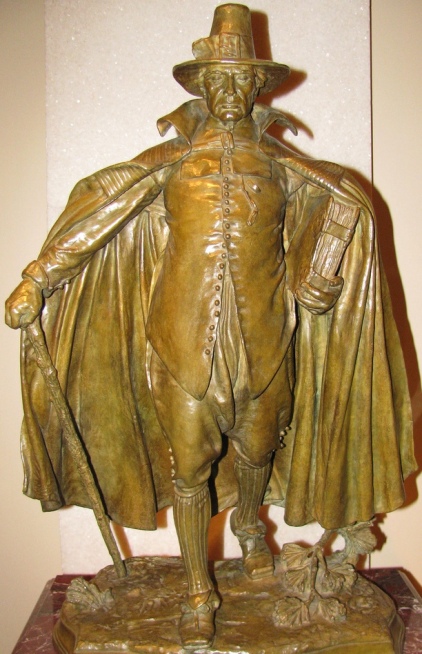
The Puritan, Augustus Saint-Gaudens
 The Puritan, Augustus Saint-Gaudens |
As far back as 1623, David Thompson had founded a settlement at Rye on the Piscataqua, the nucleus of what was to become New Humpshire. From the 1620s there were further settlements up the coast in what was to become Maine, set up by dissenting fishermen. Between 1630 and 1660 about 20,000 Puritans came out, with Massachusetts and Connecticut forming the core area of settlement. This was characterizad by what have been called 'Christian, utopian, closed and corporate communities.' |